13 Cleaning Myths You Need to Stop Believing
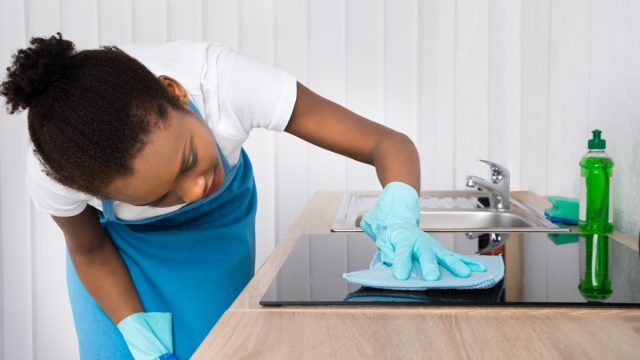
If there’s one task most people would love to have taken off their plate, it’s cleaning. In fact, in an effort to make that often thankless-feeling chore—one that’s taking more time than ever, thanks to the COVID-19 pandemic—a little bit easier, people look for practically any shortcut that will help them cover more area quickly. The only problem? Many of those so-called cleaning hacks you’ve heard are unlikely to yield the results you’re hoping to achieve. Before you make a critical error, read on to discover which cleaning myths experts say you need to stop believing now.
1
Vinegar is an effective antibacterial cleaner.
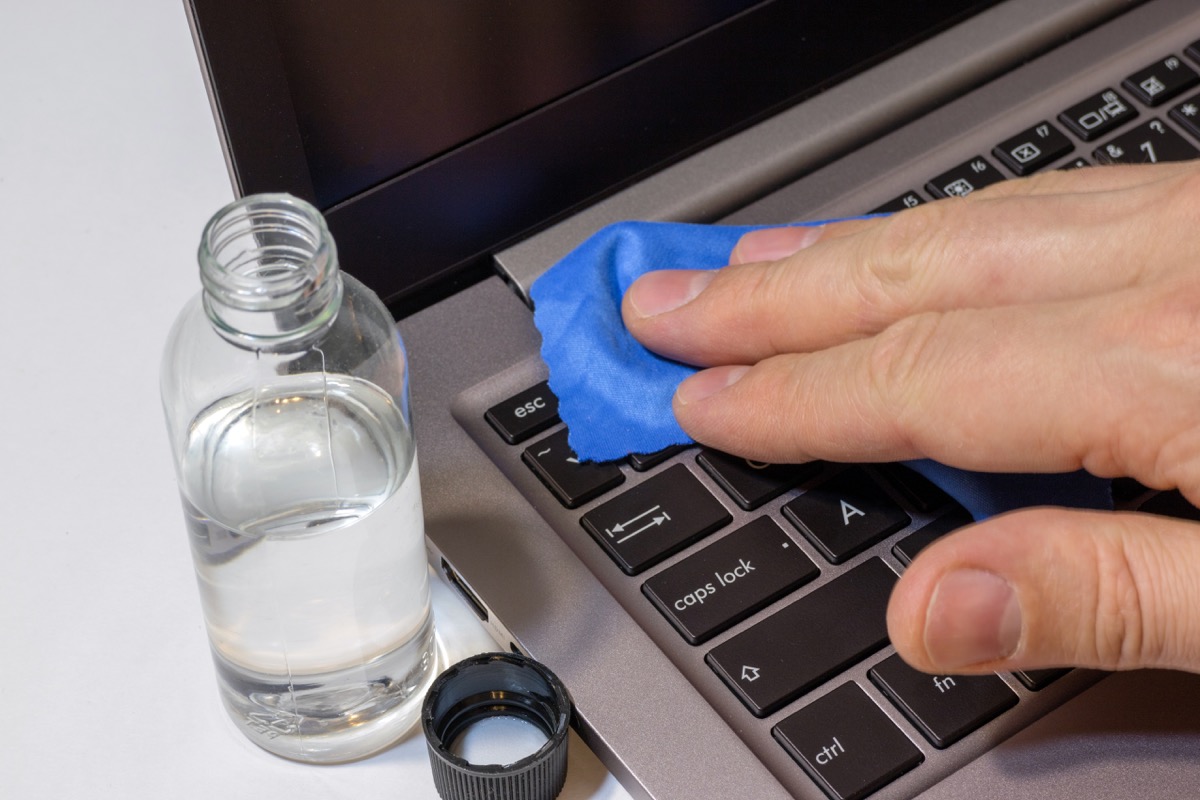
While you may be eager to disinfect your home amid the coronavirus pandemic, vinegar simply won’t do the trick.
“Vinegar is not an effective anti-bacterial or antivirus agent,” says Pete He, PhD, the chief scientist and co-founder of Dirty Labs. He notes that the EPA doesn’t recognize vinegar as an antimicrobial agent for surface sanitizing or disinfecting. As an effective alternative, he recommends instead using hydrogen peroxide, which is registered as a surface sanitizer and disinfectant.
2
Vinegar is an appropriate cleaner for all surfaces.
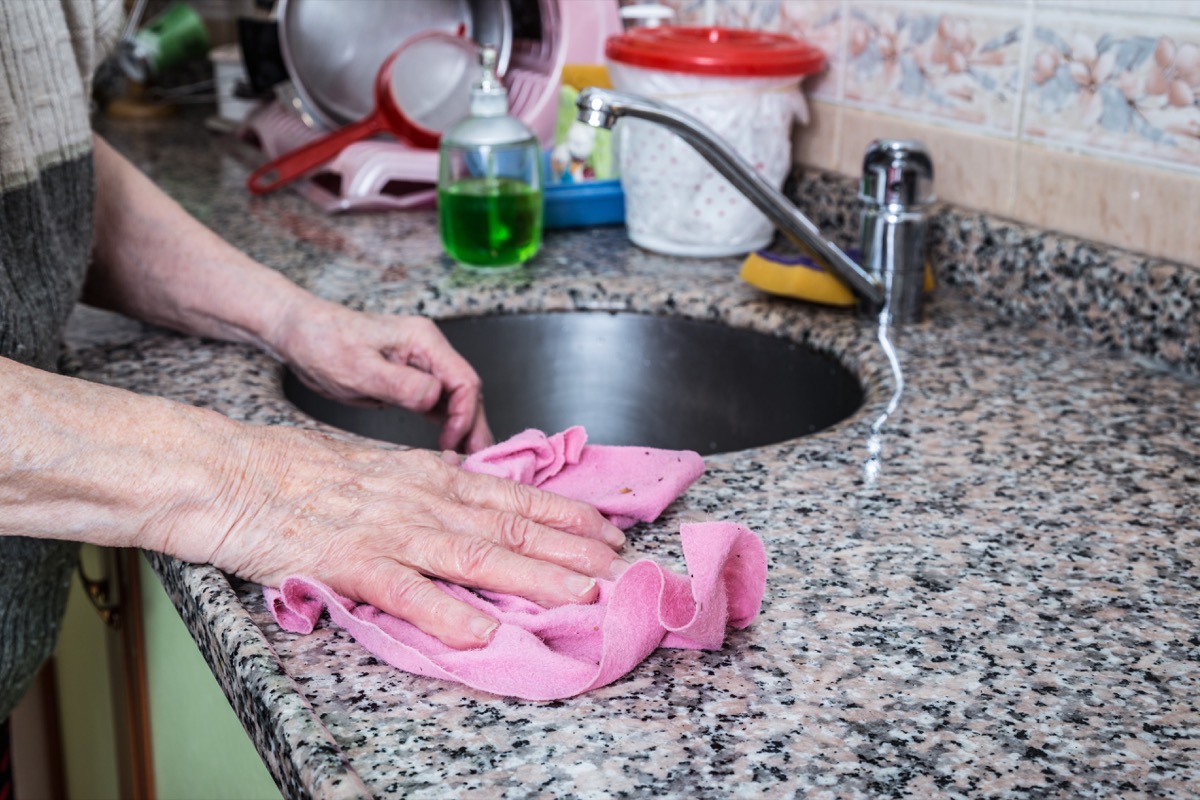
Vinegar may be fine for removing grime from some areas of your home, but it’s not appropriate for every surface.
Acetic acid, vinegar’s active ingredient, has a low pH and high acidity level, He explains. As such, “acetic acid has the potential to damage or cause corrosion to many types of hard surfaces including metal, glass, and certain ceramic and stone tiles, as well as grouts.”
3
Newspaper is effective for cleaning windows and mirrors.

If you’re looking to get those glass surfaces sparkling, standard issue cleaning supplies will serve you far better than a piece of newspaper.
According to Brad Roberson, president of Glass Doctor, a Neighborly company, newspapers were once much thicker than they are today, making them somewhat effective for cleaning glass. However, today’s thinner newspapers will “quickly deteriorate when wet and leave newsprint spots on your mirror frames and window sills,” he cautions. Instead, Roberson recommends using glass cleaner and a microfiber cloth instead. And if you want to avoid damaging your space, discover these 23 Common Cleaning Mistakes That Experts Say Actually Ruin Your Home.
4
Baking soda is the best way to remove odors from carpets.
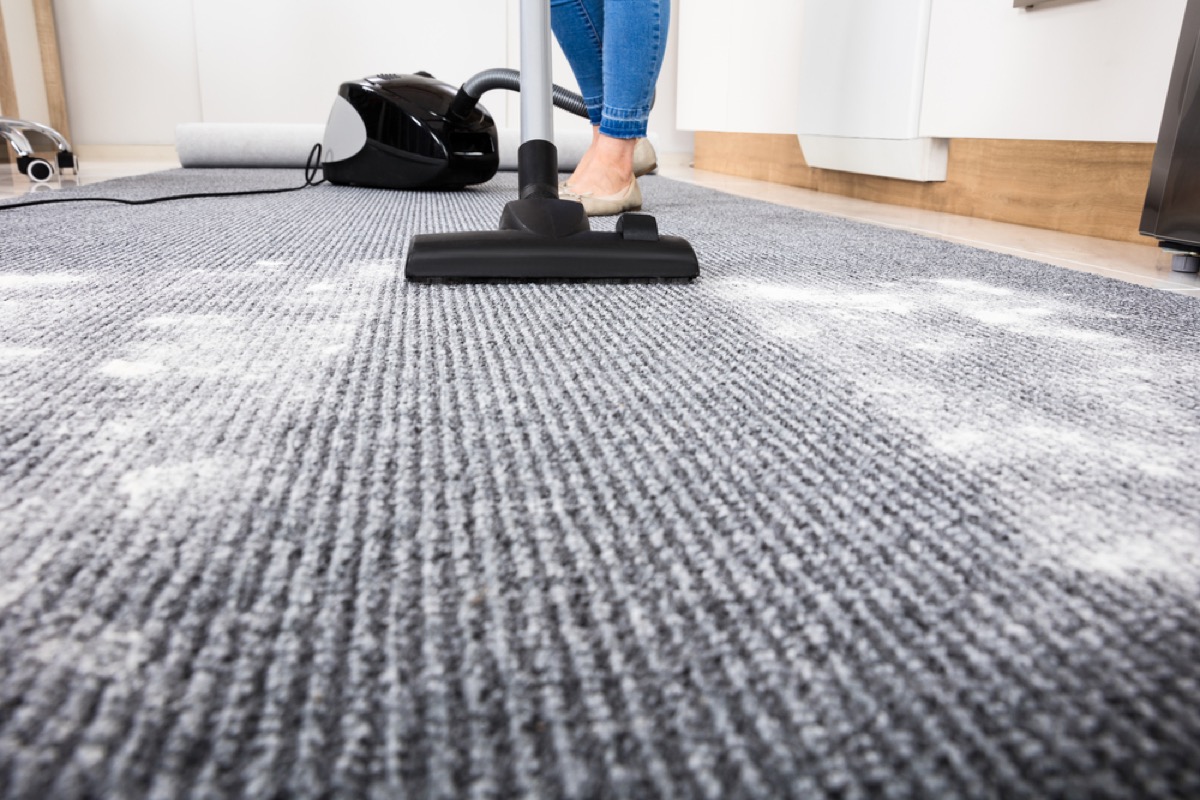
Baking soda has many uses, but if you’re counting on it to remove tough odors from your carpets, don’t hold your breath.
“While sprinkling baking soda directly on your carpet can help to absorb unwanted odors, it does not completely remove the actual source of the odor, and therefore only masks the odor for a short period of time,” explains Joshua Miller, director of technical training at Rainbow International, a Neighborly company. To actually remove the odor for good, Miller says it’s important to blot the stain as quickly as possible and have your carpets cleaned at least once a year.
5
Self-cleaning ovens completely clean themselves.
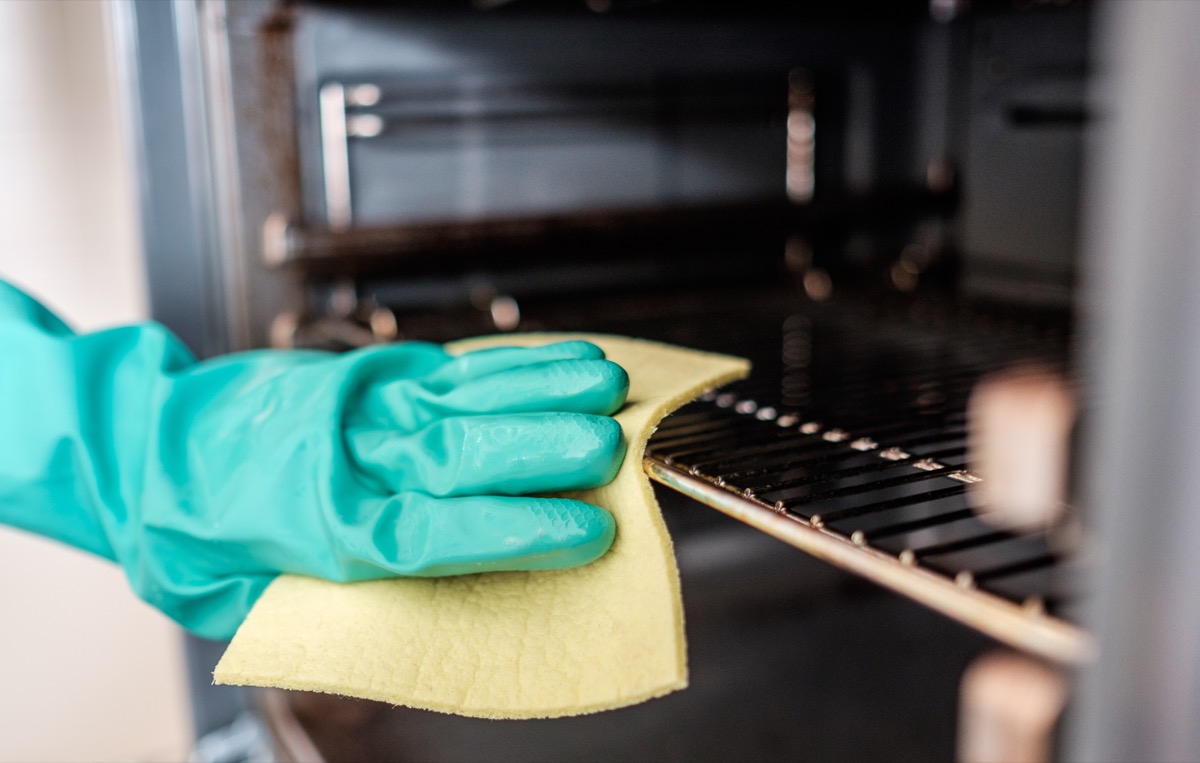
The term “self-cleaning oven” is a bit of a misnomer, unfortunately.
“While they do reduce small food particles to ash, self-cleaning ovens do require their owner’s input afterwards,” says Cyrus Bedwyr, a professional kitchen and oven cleaning specialist with Fantastic Services. “If you don’t clean your oven from time to time and rely just on the self-cleaning function, it’s inside will begin to resemble a coal mine in no time.” Can’t get to the store to re-up your cleaning supplies? Then check out these 33 Brilliant Second Uses for Cleaning Products You’ve Never Tried Before.
6
Spraying surfaces with disinfectant is enough to remove viruses and bacteria.
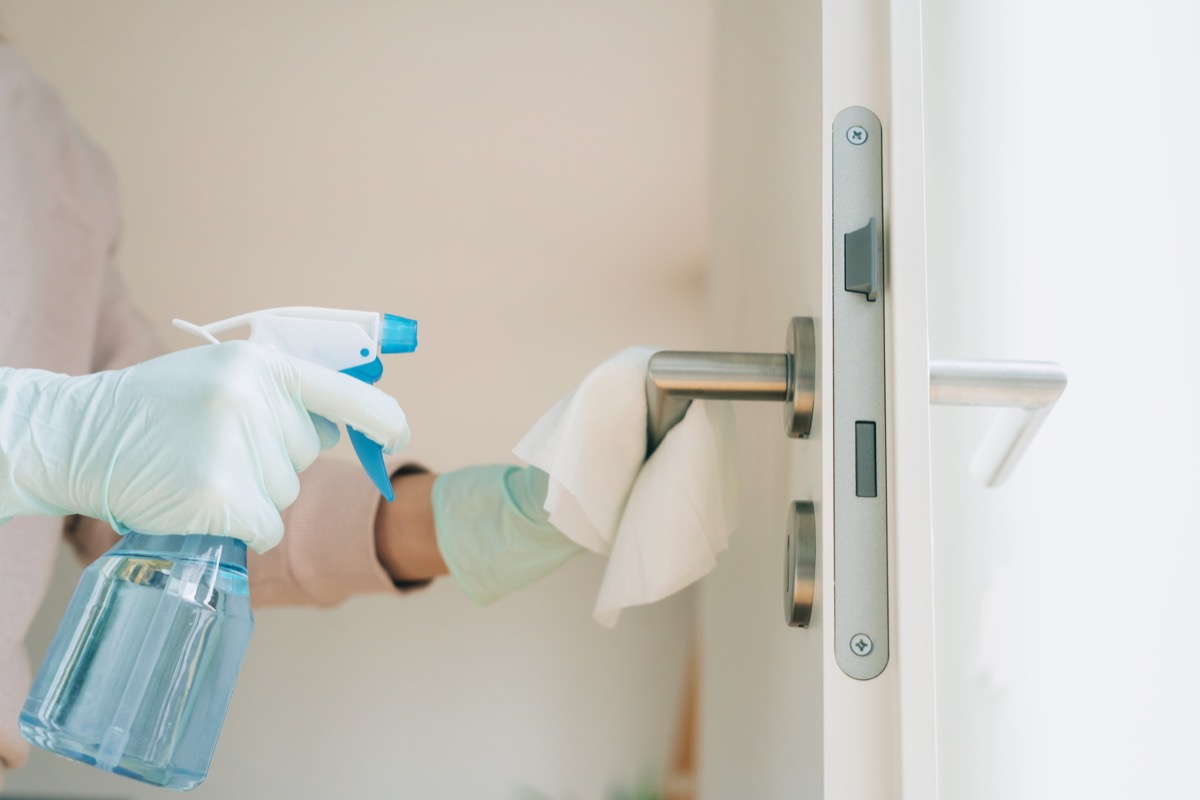
Simply spraying disinfectants onto your surfaces won’t get them sufficiently clean.
“Surfaces must first be cleaned with soap and water, or another alcohol- or bleach-based product to remove ‘biofilms,’ the cellular material left behind by human touch that blocks the disinfectant from effectively reaching and penetrating the virus,” explains Cory Chalmers, Steri-Clean CEO and featured expert cleaner and host on A&E’s Hoarders.
7
Lemons can disinfect your garbage disposal.
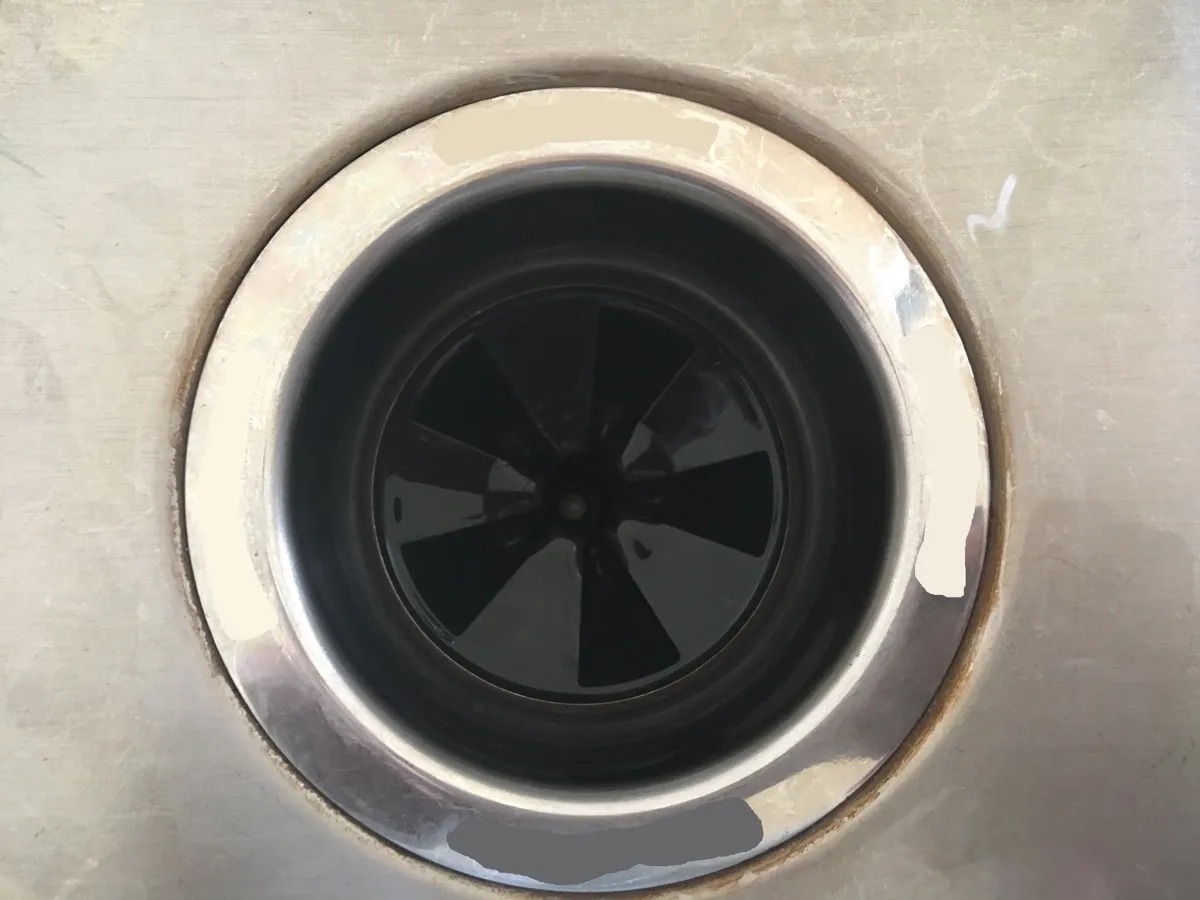
While adding a lemon to your garbage disposal may make it smell better, it’s not doing anything to diminish the bacteria therein.
Instead, “to properly disinfect your disposal, you must spray a cleaning solution [like] a mild soap down the drain. Let the solution sit, scrub your disposal with a brush, and flush with warm water,” says Paul Abrams, a plumbing expert with Roto-Rooter. And if you’re eager to do some deep cleaning, This Spring Cleaning Checklist Will Keep You Organized.
8
Ketchup will polish tarnished silver.
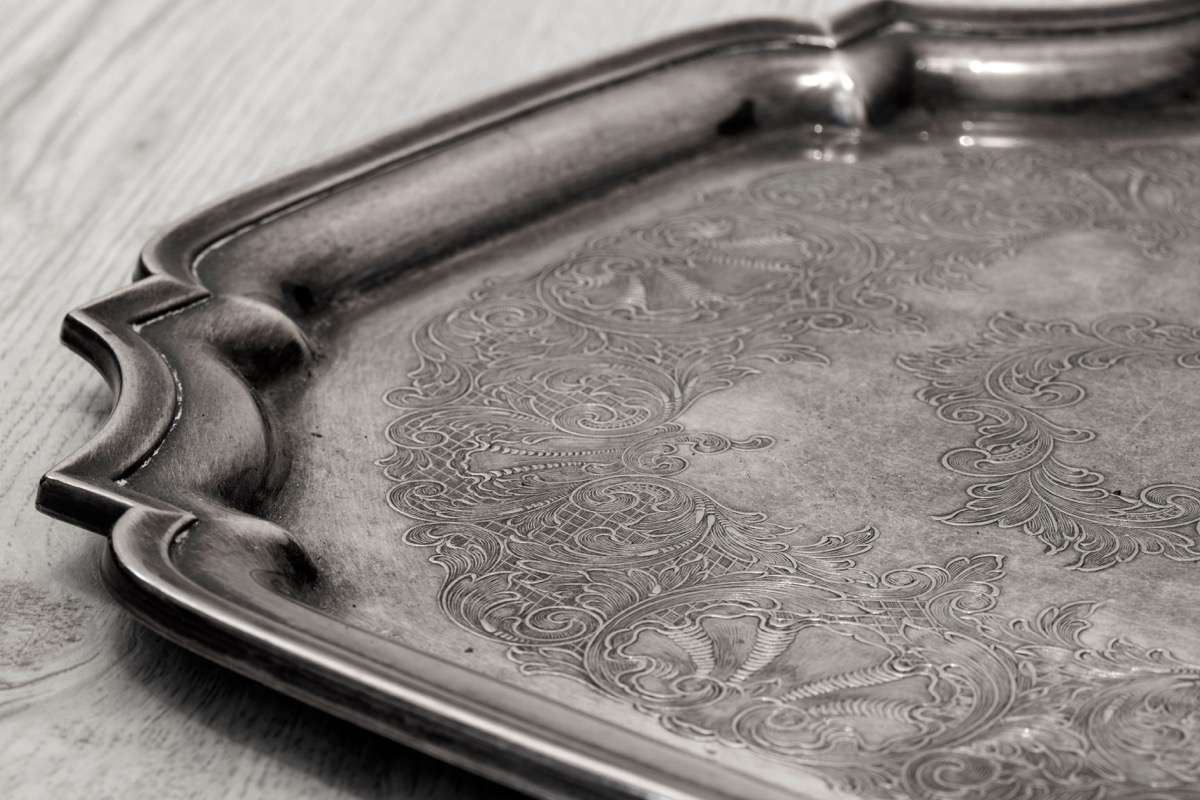
If you’re trying to clean tarnished silver, break out the silver polish, not the condiments.
According to Sean Parry, a cleaning expert with U.K.-based home cleaning company Neat Services, while the vinegar in ketchup theoretically removes tarnish, in practice it’s far from effective. “Although it may work very slightly, the reality is that you need far more concentrated vinegar to effectively remove these stains,” explains Parry.
9
Car wax makes it easier to clean your cooktop.
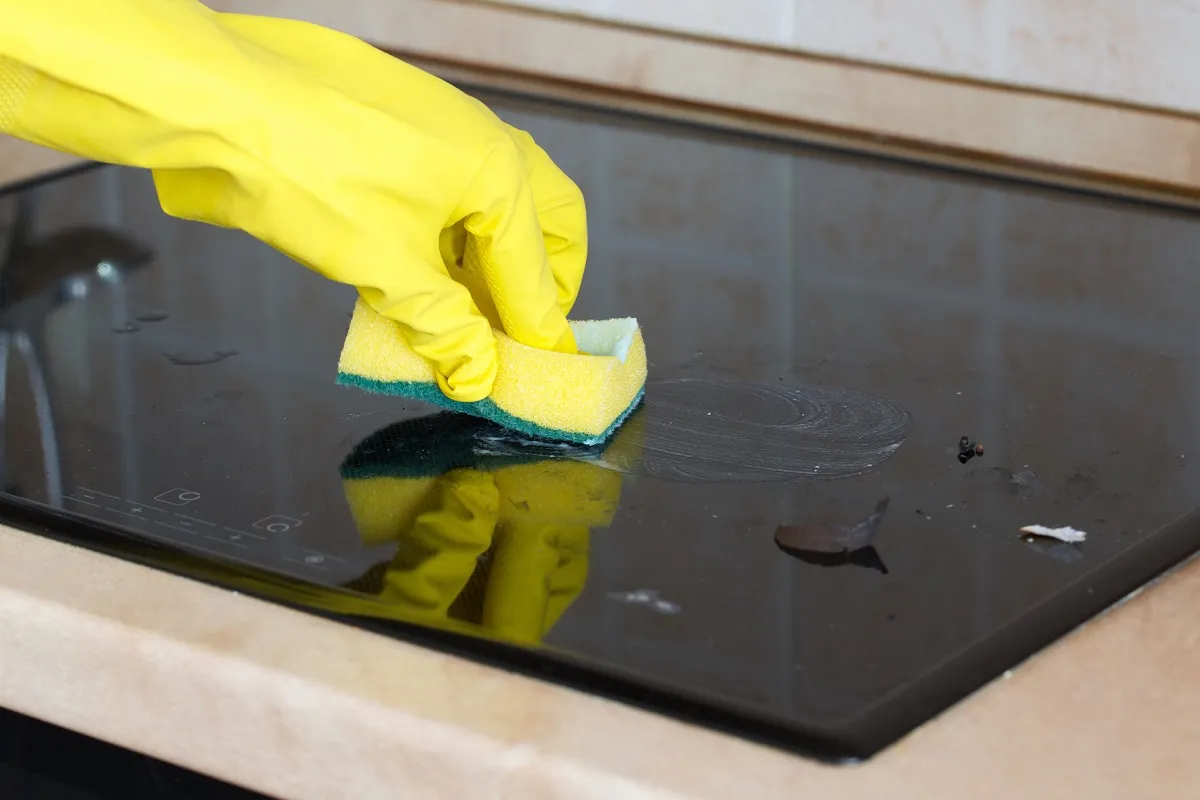
Cooktops are notoriously hard to clean, but many people claim there’s an easy solution: coating the cooktop with car wax to make wiping up messes easy. The only problem? It’s hugely dangerous.
Applying car wax to your cooktop “presents a very real fire risk, so [it] should absolutely not be used,” says Parry. If you want to avoid stuck-on food and grime, Parry recommends wiping up spills as they occur and cleaning frequently with a microfiber cloth and specialized cooktop cleaner.
10
Mouthwash can clean out your washing machine.
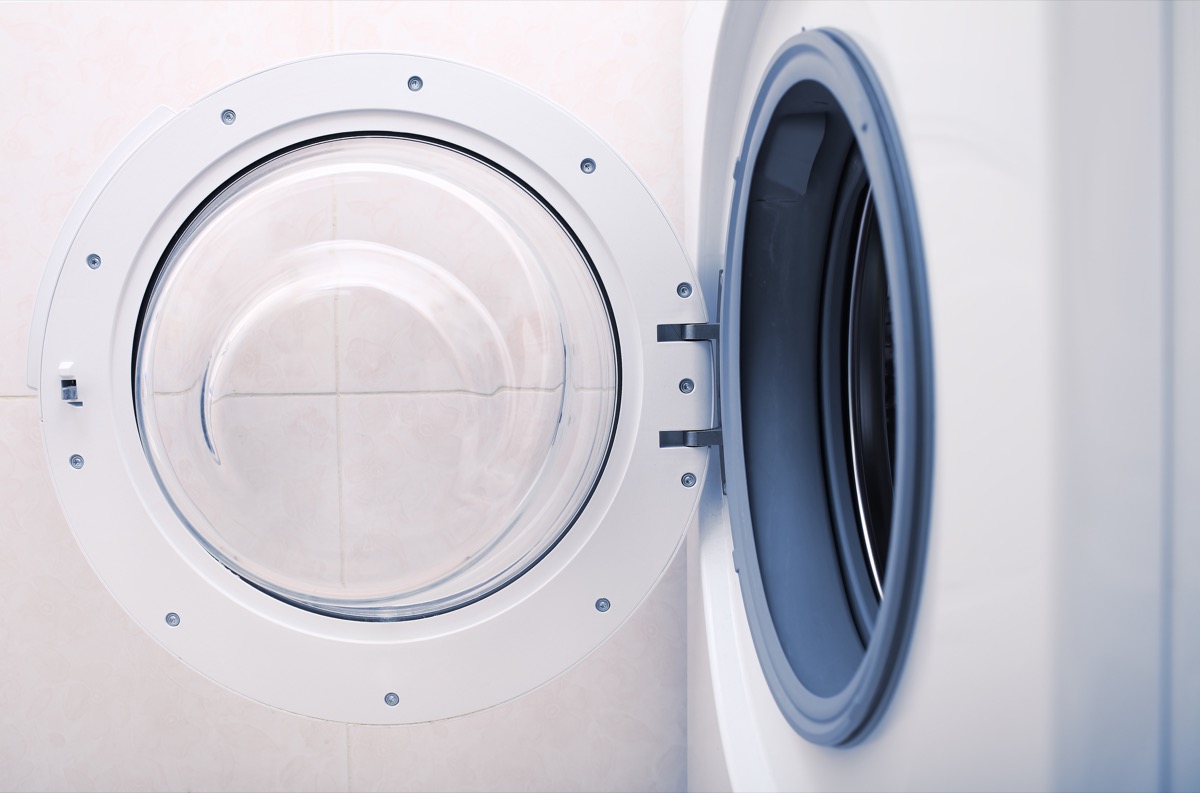
If you want to get your washing machine clean, you’re going to have to put in some elbow grease—not a capful of mouthwash. While the antibacterial properties of mouthwash allegedly disinfect the machine, “you would need a huge amount of mouthwash—and much more concentrated, as well—to make any sort of impact,” says Parry. In addition to manual cleanings, Parry recommends running a white load with bleach or an empty bleach load every few months to disinfect it instead.
11
Ice cubes help sharpen garbage disposal blades.
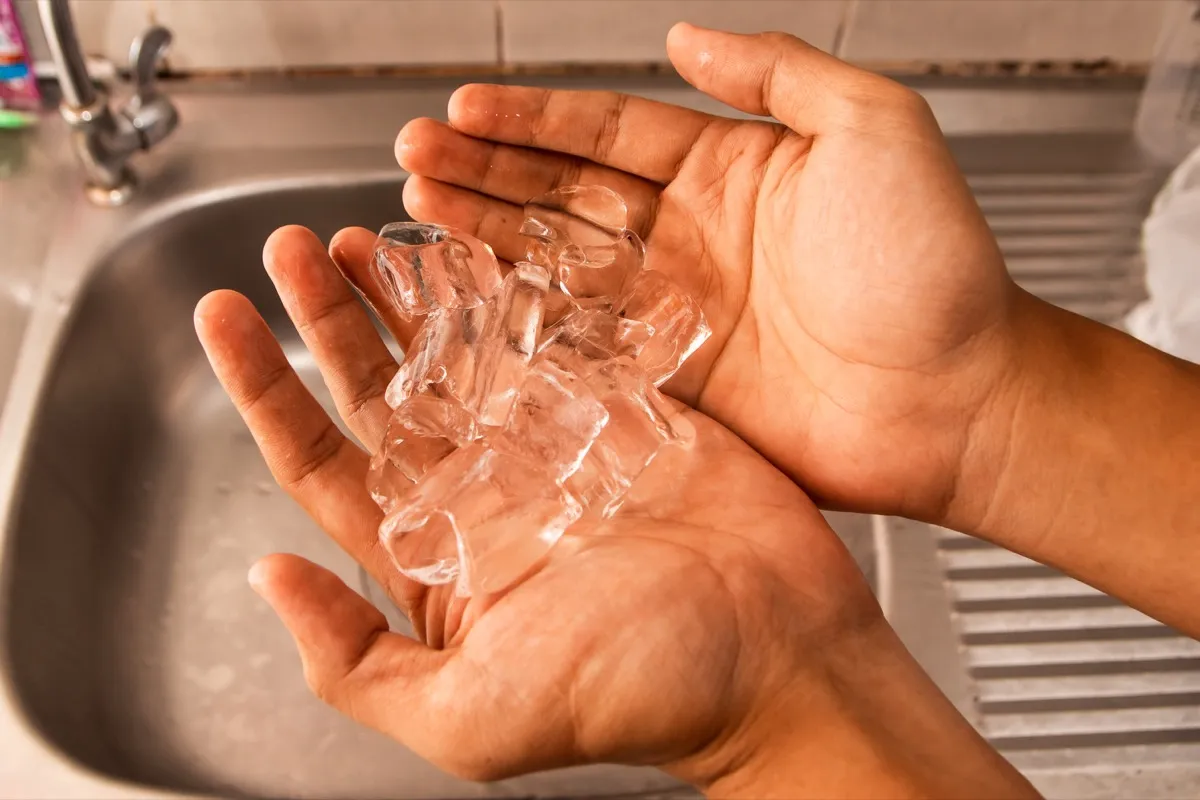
Ice cubes keep your drink cold, but they’ll do little to help keep your garbage disposal in working order.
“Garbage disposals don’t actually have blades and instead, have two teeth-like impellers that work to grind solids into liquid,” explains Doyle James, president of Mr. Rooter Plumbing, a Neighborly company. If you want to clean out your disposal, James recommends pouring half a cup of baking soda, a cup of vinegar, and a pot of boiling water into your disposal instead.
12
Using more detergent helps get your clothes cleaner.
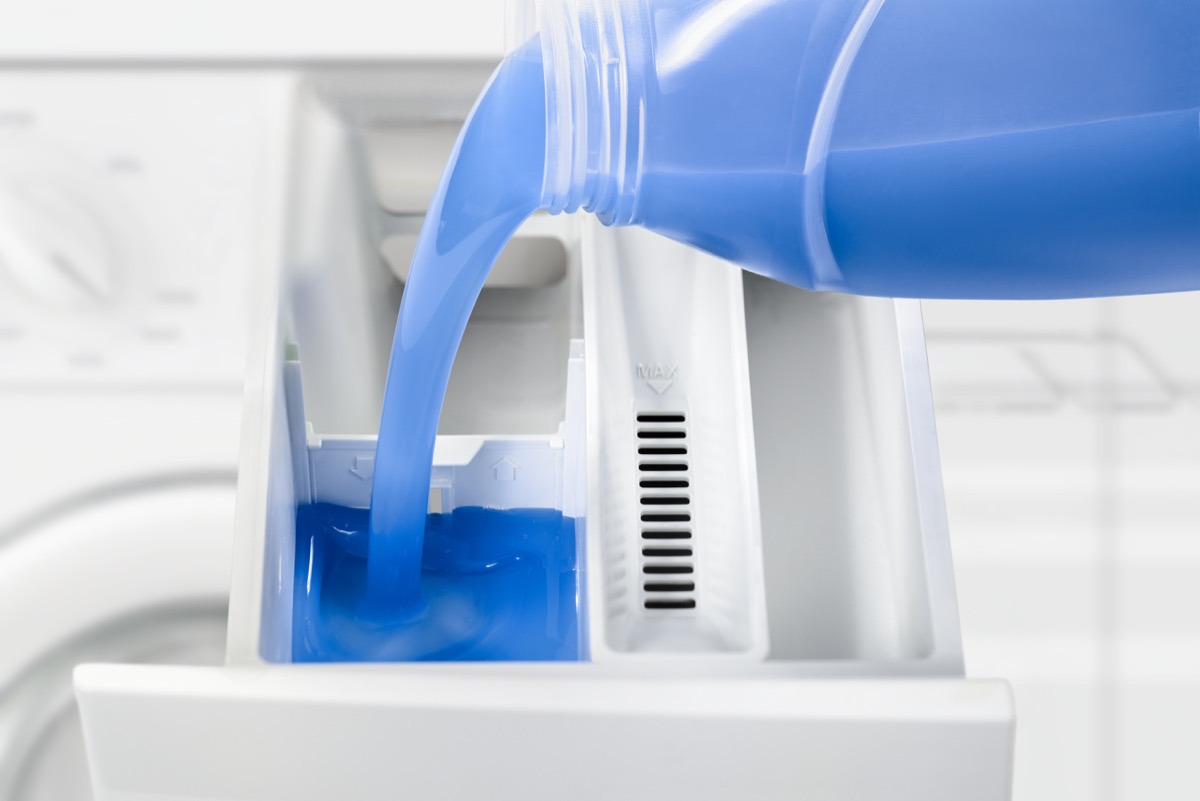
Less is more when it comes to your laundry detergent.
“Not only can excessive suds damage a washing machine’s pump and drain, but it can also create excessive suds that actually re-deposit soil onto our clothing,” explains Chris Blanchette, franchise owner of Mr. Appliance of the Merrimack Valley, a Neighborly company. In fact, over time, the build-up of leftover detergent can even cause mold in your machine.
13
Cleaning solutions work instantly.
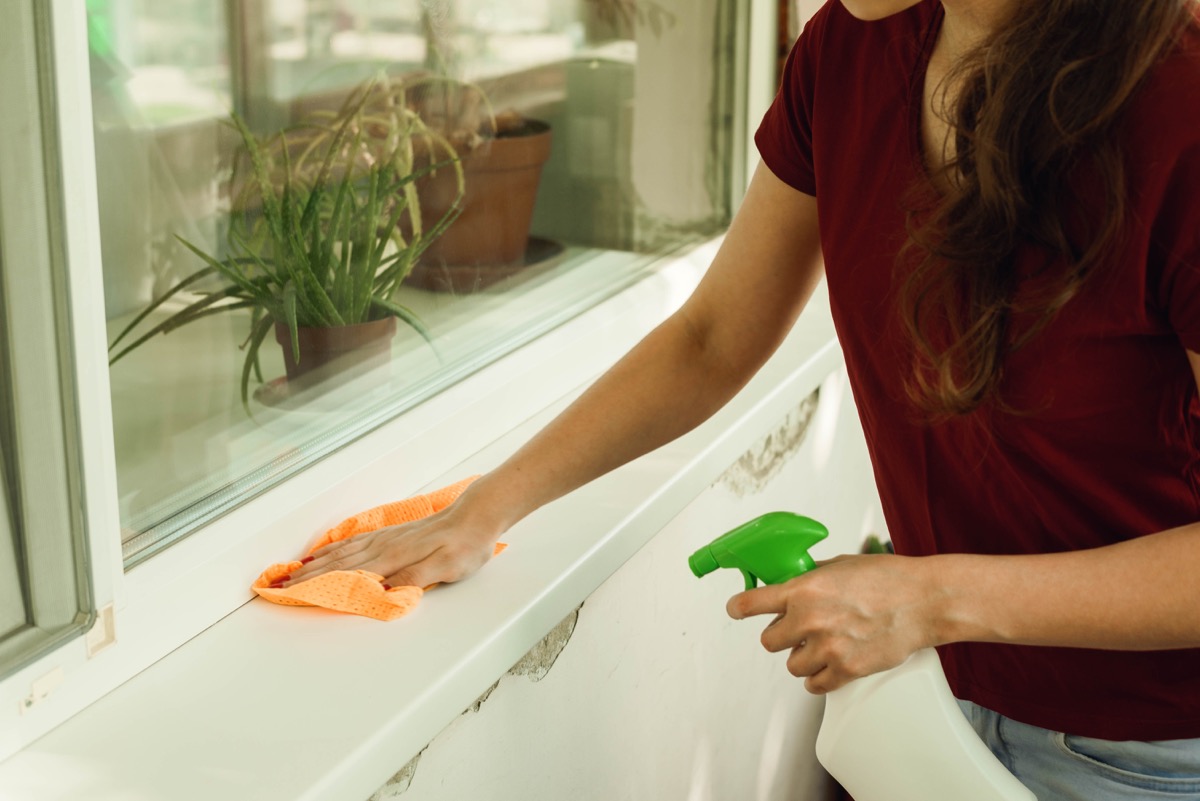
If you’re spraying on cleaning solutions and immediately wiping them away, your house simply isn’t as clean as you wish it was.
“When you spray your counters and surfaces, you will actually need to wait a little while for the solution to settle and get to work,” explains cleaning expert Jon Gibbons of Smart Vacuums. Not sure how long to leave that cleaning product on? Most bottles of cleaning supplies have instructions on just how long it needs to sit on a surface to be effective.